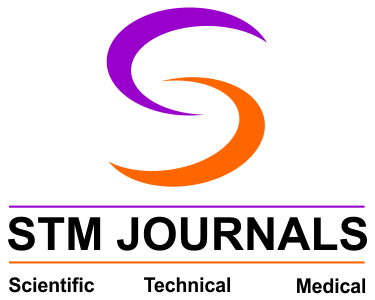
Manali Patel

Yachna Jha
- Student, Department of Biotechnology, Natubhai V. Patel College of Pure and Applied Sciences, Anand, Vallabh Vidhyanagar, Gujarat, India
- Assistant Prpfessor, Department of Biotechnology, Natubhai V. Patel College of Pure and Applied Sciences, Anand, Vallabh Vidhyanagar, Gujrat, India
Abstract
This comprehensive paper investigates the complex interplay between multifactorial diseases, particularly obesity and cardiovascular disease (CVD), and their relationship with epigenetic mechanisms, highlighting the transgenerational implications of these interactions. The multifaceted nature of obesity and CVD, involving genetic predisposition, environmental influences, and epigenetic modifications, underscores the intricate pathways contributing to disease susceptibility and progression. Drawing upon a synthesis of diverse research findings, the paper elucidates the critical role of genetic predisposition in shaping disease susceptibility across generations, emphasizing the importance of genetic screening and counseling for identifying at-risk individuals and families.
Furthermore, the paper delves into the transgenerational impact of environmental exposures, emphasizing the heritability of epigenetic changes induced by factors such as maternal diet and lifestyle choices. This insight underscores the significance of early-life interventions and maternal health programs in promoting optimal health outcomes for offspring. The recognition of epigenetic programming as a mediator of the long-term effects of early-life exposures highlights the potential for personalized interventions tailored to individual risk profiles, thereby advocating for a proactive and preventive healthcare approach.
Overall, this paper provides valuable insights into the complex interplay between multifactorial diseases, epigenetic mechanisms, and their transgenerational implications, emphasizing the significance of adopting a holistic approach to address the burden of obesity and CVD across generations. It underscores the importance of implementing targeted interventions and policies aimed at promoting long-term health and well-being for future generations, thereby advocating for a proactive and preventive paradigm in public health initiatives. Comprehending the transgenerational effects of multifactorial diseases, particularly considering epigenetic influences, is of utmost importance in shaping future health outcomes and devising focused interventions aimed at reducing the risk of obesity and cardiovascular disease across broader demographics.
Keywords: Multifactorial diseases, Obesity, Cardiovascular disease (CVD), Epigenetic mechanisms, Transgenerational implications
[This article belongs to International Journal of Genetic Modifications and Recombinations(ijgmr)]

Browse Figures
References
- Locke, Adam E., et al. “Genetic studies of body mass index yield new insights for obesity biology.” Nature 518.7538 (2015): 197-206.
- Yaghootkar, Hanieh, et al. “Genetic evidence for a link between favourable adiposity and lower risk of type 2 diabetes, hypertension, and heart disease.” Diabetes 67.7 (2018): 1197-1206.
- Llewellyn, Clare H., et al. “The association between pregnancy weight gain and birthweight: a within-family comparison.” Scientific Reports 6.1 (2016): 1-8.
- Milagro, Fermín I., et al. “Epigenetic signatures associated with different levels of physical activity.” Journal of Physiology and Biochemistry 69.1 (2013): 3-19.
- Vaiserman, Alexander M., and Oleh M. Koliada. “Early-life adversity and long-term neurobehavioral outcomes: epigenome as a bridge?” Human Genomics 11.1 (2017): 34.
- Wu, Yuntao, et al. “Parental obesity and early-life body composition influence the human umbilical cord DNA methylome.” Clinical Epigenetics 12.1 (2020): 50.
- Feinberg, Andrew P., and Jean-Pierre Issa. “Epigenetics in health and disease.” Nature 455.7215 (2008): 721-723.
- Greco, Claudia M., and Matteo Pirro. “Epigenetic modifications in cardiovascular risk factors and atherogenesis.” Clinical Science 132.19 (2018): 2065-2086.
- Ha, Min J., and Mukesh K. Jain. “Understanding the epigenetics of cardiovascular disease.” The Journal of the American Medical Association 315.9 (2016): 926-928.
- Khan, Omar, and Mukesh K. Jain. “Molecular mechanisms of pathogenesis in atherosclerosis.” Trends in Molecular Medicine 24.2 (2018): 158-170.
- Lusis, Aldons J. “Atherosclerosis.” Nature 407.6801 (2000): 233-241.
- Soubry, Adelheid. “Epigenetic inheritance and evolution: A paternal perspective on dietary influences.” Progress in Biophysics and Molecular Biology 117. 1 (2015): 33-38.
- Wang, Dajun, and Y. Eugene Chen. “Epigenetic regulation of macrophages: from homeostasis maintenance to host defense.” Cellular Immunology 330 (2018): 42-54.
- Zaina, Silvio. “Unraveling the DNA methylome of atherosclerosis.” Current Opinion in Lipidology 28.2 (2017): 123-128.
- Zhang, Kun, et al. “A new world of genetics and epigenetics: opening the way to understand the real cause of heart disease.” Current Opinion in Cardiology 31.3 (2016): 235-239.
- Zhou, Tong, et al. “The emerging roles of the Dnmt3a in oxidative stress and inflammation.” The International Journal of Biochemistry & Cell Biology 129 (2020): 105885.
- Pembrey, Marcus E., et al. “Sex-specific, male-line transgenerational responses in humans.” European Journal of Human Genetics 14. 2 (2006): 159-166.
- Soubry A. Epigenetic inheritance and evolution: a paternal perspective on dietary influences. Progress in biophysics and molecular biology. 2015 Jul 1;118(1-2):79-85.
- Waterland RA, Jirtle RL. Early nutrition, epigenetic changes at transposons and imprinted genes, and enhanced susceptibility to adult chronic diseases. Nutrition. 2004;20(1):63.
- Mahmoud AM. An Overview of Epigenetics in Obesity: The Role of Lifestyle and Therapeutic Interventions. International Journal of Molecular Sciences. 2022; 23(3):1341.
- Gorica, E., Mohammed, S. A., Ambrosini, S., Calderone, V., Costantino, S., & Paneni, F. (2022). Epi-Drugs in Heart Failure. Frontiers in cardiovascular medicine, 9, 923014.
| Volume | 02 |
| Issue | 01 |
| Received | September 20, 2023 |
| Accepted | October 30, 2023 |
| Published | March 16, 2024 |




